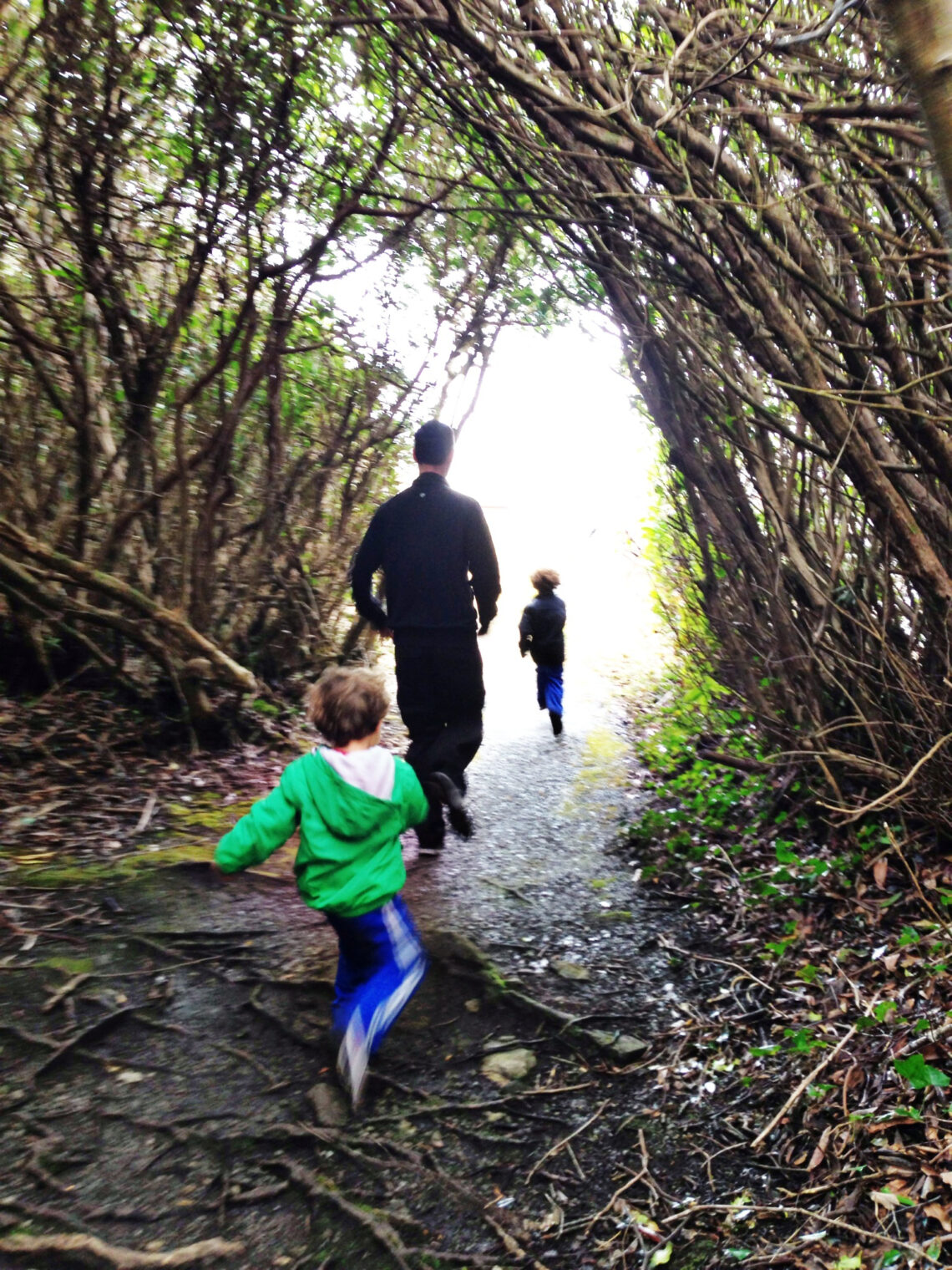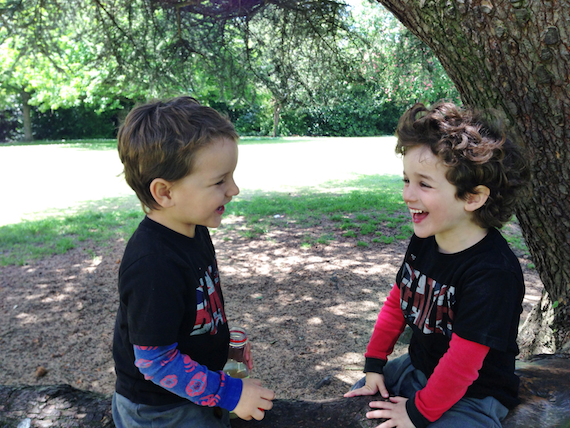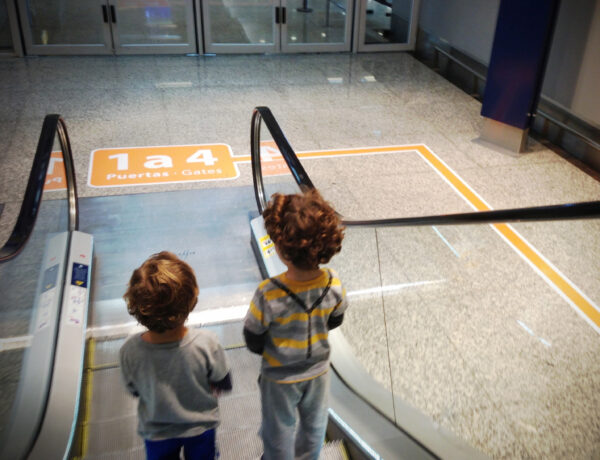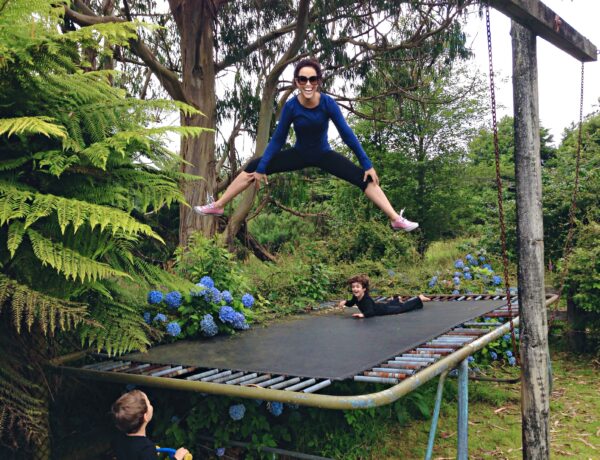The two letters below are very powerful and both touched my heart deeply. I had to share, as these are very important reminders and lessons for all. Happy Father’s Day.
A Father’s Letter of Apology to His Boys (For Father’s Day)
Dear Boys,
Today, I arrived at my office door, my mind spinning with countless concerns — house repairs and my therapy clients and blog comments and how to convince your mother I was right about something completely inconsequential. I found myself lost in the crowd of my various identities — homeowner, psychologist, writer, vindicated husband.
But then I found my office keys and the keychain you made me for Father’s Day and the three big, brightly-colored letters you inscribed upon it:
D-A-D.
I got ambushed by my most important identity — Father. And I realized for an entire morning, like so many mornings before it, I had gotten distracted from my most sacred role by all of my perfectionism, my sense of duty, fear of rejection and my desire for affirmation.
And something inside of me cracked.
I think it was my ego — the voice inside telling me if I want to be good enough I have to look perfect, take care of everyone, win everybody over, and be right all the time.
Boys, I want to apologize for my fierce but fragile ego.
Boys, I want to apologize for all of the ways I let my ego prevent me from being the kind of father of which you are completely worthy.
I’m sorry for every time you’ve needed an embrace and I gave you something less because affection requires time and presence and vulnerability.
I’m sorry for every time the projects in my life have been more important than the people in my world.
I’m sorry for every time I’ve demanded respect, instead of earning it.
I’m sorry for every time I’ve said, “No,” simply because I can.
I’m sorry for every time I’ve told you to be humble and then turned around and acted like losing was the end of the world.
And I’m sorry for every time I didn’t say, “I’m sorry,” because they are, I’m learning, two of the most important words a father can say.
But mostly, Boys, I’m sorry for all the times I have communicated in subtle and not so subtle ways that your worth is conditional upon my approval or my mood or the consent of my fragile ego.
Boys, don’t let anyone — including me — convince you that your worth is rooted in anything so transient as another person’s opinion of you.
Your worth is conditional upon nothing.
You came into the world with infinite value and you will leave it in the same way, regardless of what you do or don’t do in this life. I know this seems too good to be true — in fact, many people will tell you it is a recipe for entitlement and narcissism — but if you can learn to trust it, you will be free.
Free from the game of ego inflation in which so many of us are constantly embroiled.
Free to live what is written on your souls, rather than what other people have written upon you with their own brokenness and wounds.
Free to love yourself — and therefore others, as well — without condition and without limit in a world that places every kind of condition upon love and belonging.
Free to create beauty and abundance in a world that seems to be threatened by both.
Free to become portals of grace in a world that thrives on shame and condemnation.
Boys, instead of placing conditions of worth upon you, I want to become a reflection of your worth — I want to mirror the awesome beauty I see in both of you, so you can begin to see it in yourselves.
In the end, Boys, I hope you can spend your lives knowing who you are, instead of constantly proving who you are.
With deep admiration for who you are, all the time, wherever you go, whatever you do,
Dad
——
After I wrote a letter to my daughter, an interviewer asked me what words I would have for my boys. My first thought was, “Just two words: I’m sorry.” Because those two words have the power to undermine the ego game in which boys and men are so often encouraged to compete.
So, I wrote this for my boys — because I want them to be free of the game.
And I wrote it for the men who have had the courage to sit in my office, to feel broken, to let their egos die, and to discover who they really are.
And I wrote it as a permission slip to a world of fathers who have an opportunity to fundamentally change the way our world works, by freeing the next generation from the game we play, one father and one son at a time.
Kelly M. Flanagan
What I Know About Fatherhood After Losing A Child
If I’m going to be honest, I must admit that I sometimes look at fathers who have never lost a child with a bit of envy. I wish that I, too, could experience the joys and challenges of fatherhood outside the gloom of child loss. However, if there’s anything positive to be taken from what I’ve been through, it’s that I have a newfound awareness that has made me a better father to my other children. While I hope no father who reads this ever knows the pain of losing a child, I do hope that if I share what I have learned, others might take away a new perspective about how lucky we are to be fathers.
Parent without regret.
I have a lot of friends who say that while their fathers are terrific today, this wasn’t always the case. This isn’t because their fathers were bad men, but because it takes a quantum leap in maturity to go from caring for only yourself and your spouse to caring for a child as well. Many men aren’t ready to make that leap right away and need a number of years to mature into the kind of father they can be proud of. When you lose a child, though, you never get the chance to become a better parent to that child. Who you were when they were alive will always be the father you were to them.
Thankfully, the 68 days my daughter, Maddie, spent in the NICU after she was born made me grow up in a hurry, and I was a very loving and involved father during her 17 months of life. But I still have regrets. In the weeks before Maddie passed away, my wife, Heather, invited me to join them on a play date at the park, but after a long week of work, I begged off so that I could veg out on the couch. Knowing that I passed up one of my daughter’s last Saturdays in the sun is something I feel terribly guilty about. So I ask fathers this: If your child were to die tomorrow, would you be able to look yourself in the mirror and say you were the parent you wanted to be? It’s a sobering question to ponder, but an important one. Fatherhood is happening right now; embrace it fully from the start.
Take care of yourself.
One of the most important lessons I learned after the birth of my second daughter, Annabel, was that in order for me to care for her to the best of my abilities, I needed to care for myself. To do that, I had to continue to address my grief and make sure I never let it overwhelm me. I realized that it was going to be difficult enough for Annabel to grow up in a home that had lost a child, and the last thing I wanted was for her to tell me one day that, because I was preoccupied with grief, I wasn’t the father she needed. As difficult as it is to live with grief, it’s my problem, and it should never become hers.
Most fathers don’t have to deal with child loss, but they may have other issues they need to address such as substance abuse, depression or anger issues (to name a few). Every father owes it to his children to deal with — and conquer — whatever issue he may have.
Be patient with your spouse.
Having children changes your life dramatically and brings with it many new responsibilities. When the demands of parenting become overwhelming, it’s all too easy to take it out on your partner and argue over insignificant things like who changed the last diaper. My wife and I sometimes bickered over things like that in the past, but not anymore. Having lost a child, we now view each dirty diaper, tantrum and spilled glass of milk with gratitude, because we know all too well what the alternative is. We still have our disagreements, of course, but we try to resolve them with kindness, patience and love. Having seen each other go through the deepest depths of despair, we want only to support each other, and by doing that we’re creating a stable environment for our children to grow up in.
Be kind to yourself.
Lastly, I could dwell on the mistakes I made with Madeline (like skipping that last Saturday at the park), but I’ve learned that nothing good comes from that. Instead, I focus on happy memories and the incredible love Maddie and I shared. Parenting is difficult. Today, even with everything I’ve been through, I still make mistakes. When I do, though, I don’t beat myself up. I pledge to learn from the mistake and do better tomorrow. In parenting there is no clear victory, but as long as you’re fully invested in your children and trying your best, you will be at peace with yourself no matter how long — or short — your children are in this world.
Mike Spohr
I hope you felt the depth in each of these letters, as I did. It is always important to be reminded of how truly precious and fragile this existence is for each of us.
♥️ Sandy




